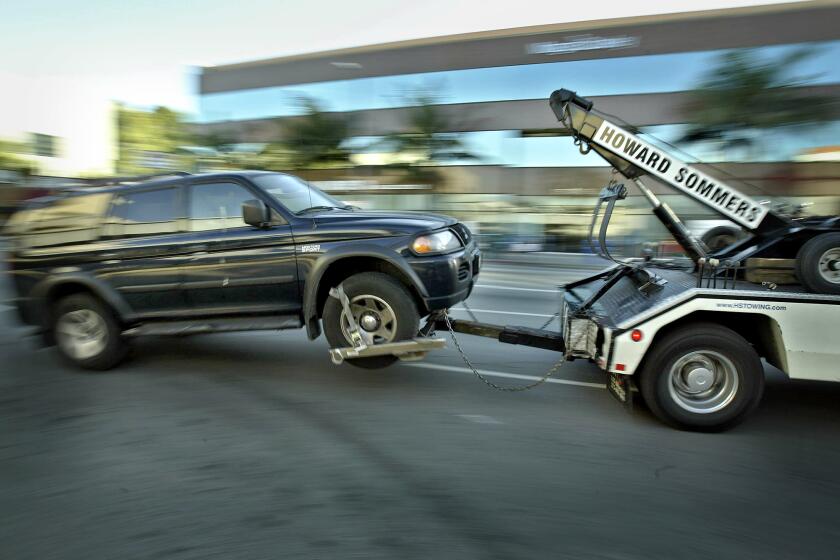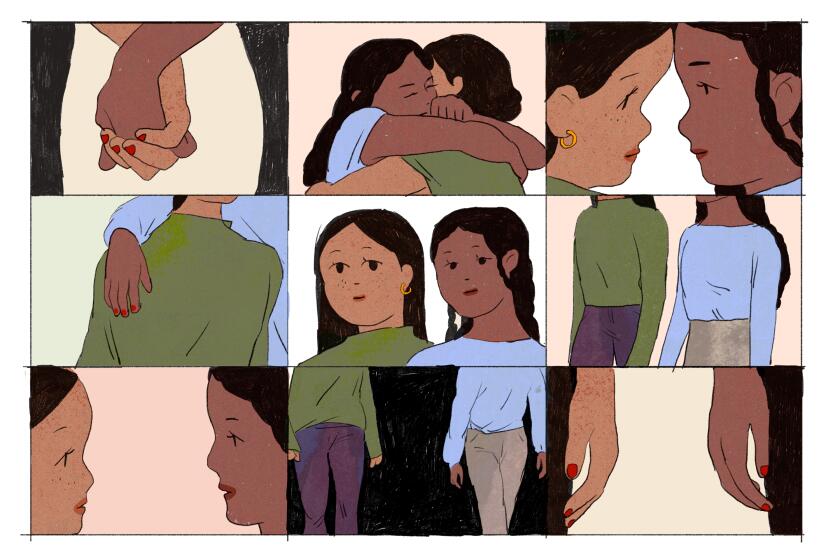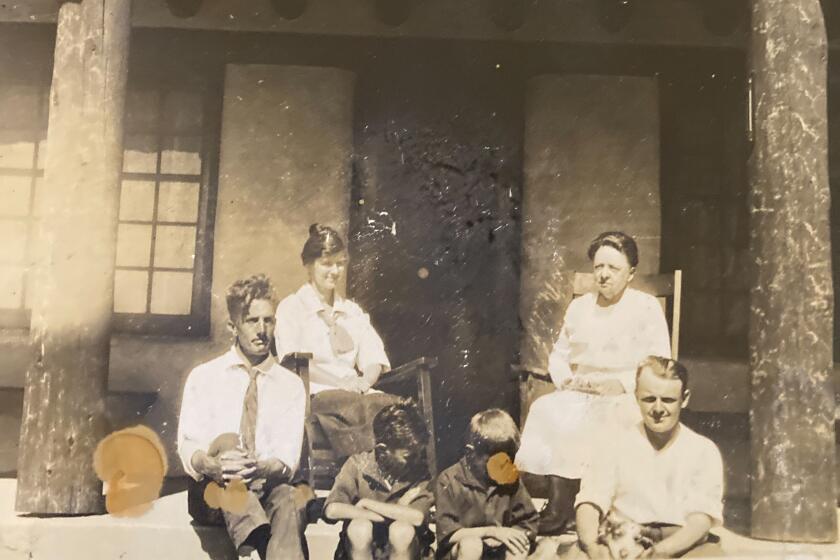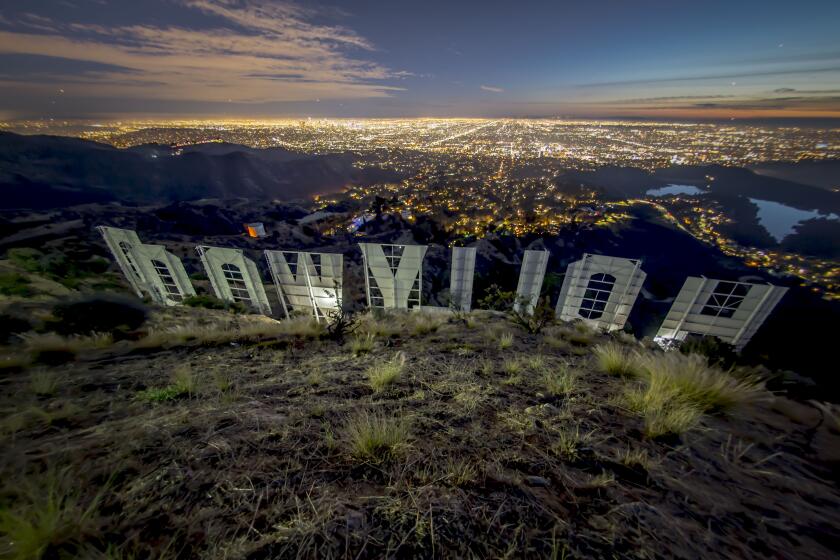Opinion: How my memories of 9/11 are helping me find an ‘after’ to the pandemic
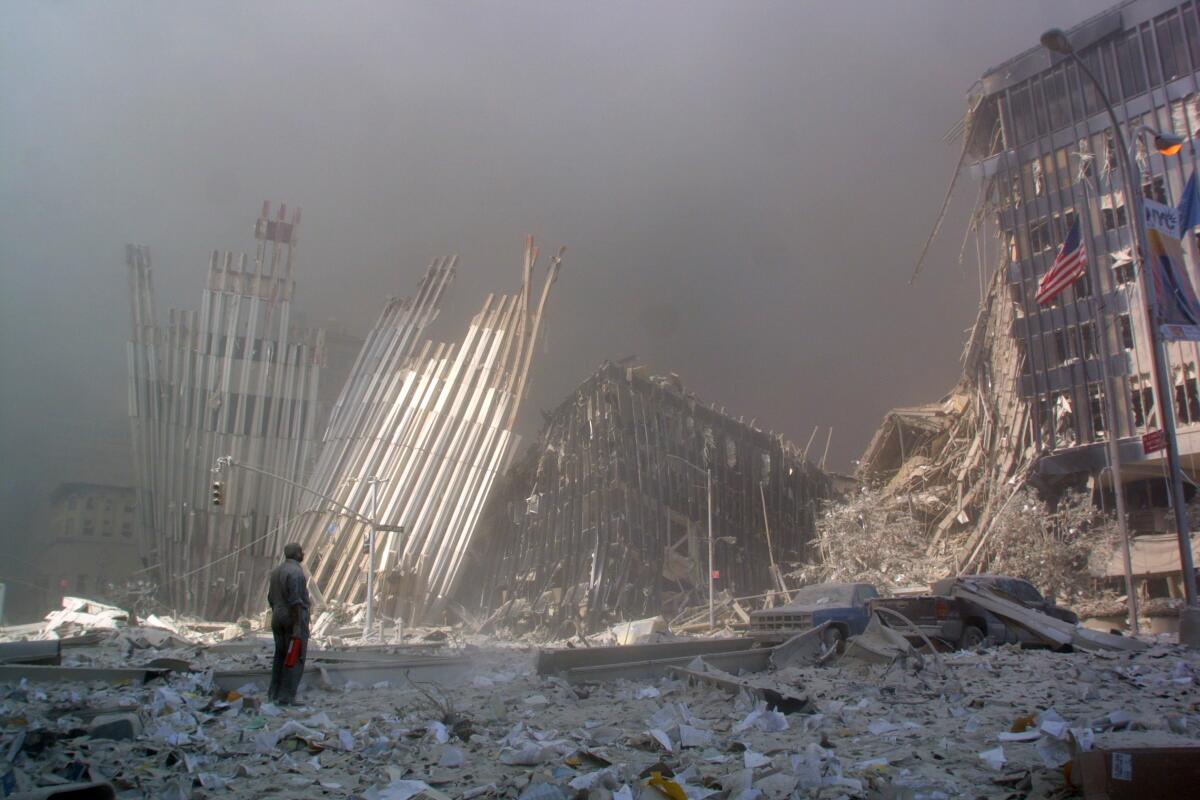
- Share via
I have a good memory, yet my mind refuses to retain some of the most significant dates in my life. Was my mother’s death Nov. 12 or 13? My wedding anniversary fell somewhere in the first half of May.
Other dates are slippery because I’m still struggling to find their end. Take the pandemic. My 40th birthday, March 12, 2020, offers one numerical anchor. The Bay Area’s lockdown started days later.
But due in part to an autoimmune disease that keeps me following COVID safety precautions, I’ve not yet arrived at a pandemic “after.” I’m also processing multiple losses from this hammock of time, including my father’s death. With no clean finish, I’m grasping for another bookend to this period of my life.
As a widow and single mother in L.A., I knew I was just one disaster away from poverty. It’s time to stop tows that target low-income Californians.
As I try to extricate myself from my current stuckness, I review other befores and afters from my life and keep returning to the one date I can’t forget: Sept. 11, 2001.
My ex-husband and I celebrated the anniversary of our first date, Oct. 20, 2001, every year that we were together. But our real anniversary might as well have been Sept. 11, which was the second world-ending demarcation in my life, five years after the first, when my mother died.
My ex and I first met in person at the Brooklyn Bridge/City Hall subway station, blocks from the World Trade Center’s ruins. I purchased an N95 mask on Broadway, the closest we could get to ground zero. We walked the blocks surrounding the still-smoking rubble before catching a movie near Union Square.
In Ethiopia, physical closeness was a natural expression of friendship and love. When I came to California and put my arm around my sister in public, she said “People will think we are lesbians.”
During that first date, he bought me an early edition of the New York Times, which had printed my first “publication,” a letter to the editor about my younger sisters’ experiences fleeing the World Trade Center’s collapse as students at the High School for Leadership and Public Service. Their school stood so close to the site that one of the plane engines landed on its roof. When I watched the towers fall from my apartment window, I expected my sisters to return home in body bags.
With premature optimism and relief I wrote in that letter, “They were lucky to come away unscathed.” How could I have anticipated that they would drop out of school months later and that fractures in our relationship would lead to years without speaking?
My father’s family farmed on the Los Alamos plateau, before the land was seized to develop the first atomic bomb. Their lives there were among the many secrets they wrapped in a shroud of silence.
The sights and sounds of the aftermath of 9/11 formed the backdrop to the budding courtship with my husband-to-be. After he finished work, we would wander to the pit to monitor the site’s excavation. Refrigerated morgue trucks rolled past my childhood playground as I rehearsed what I would say to him when we talked on the phone. I walked to the subway to meet him for breakfast to the sound of bells tolling in honor of the funerals taking place at the church across the street from my home.
I dove into the distraction of first love as a way to survive. My ex-husband became my life raft. Looking back, we probably stayed together at least a decade longer than we should have. Toward the end, he said, “You’ll always be my September 11th girl.” It wasn’t until I left our marriage in 2014 that the never-ending day finally felt over.
I still try to honor 9/11 by making it a quiet day of solitude. I don’t fly. I try to be in New York City.
I had the unexpected chance to show a young Ukrainian woman some Hollywood sites she had only known from movies. Studio heads hold the dreams of millions in their hands.
As a once-young person trying to recover after a watershed event, my heart aches for young people struggling today. Older people like me are also hurting. Drinking and substance abuse have risen, and there’s been a 6.6% increase in suicide among Americans between the ages of 45 and 64 from 2021 to 2022. I understand that distress, as I look to rebuild my life after the pandemic.
And while I’m eager to find a post-pandemic conclusion, I’m also scared of finding myself alone when I do. In lockdown my partner and I made loquat jam, hiked and enjoyed each other’s company. But beneath our coziness, cracks existed. They grew. I keep inspecting them with a magnifying glass, assessing how to repair the damage. “We got this,” I thought smugly at the pandemic’s outset. But I’m not sure whether we do.
I’m not a religious person, but I believe in life after death. I know from my befores and afters that I can resurrect my life. I may not know where I’m going, but making sense of where I’ve been comforts me and reminds me of the value of patience. I trust I’ll find my pandemic “after,” even if it takes me a little longer than most. It always does.
Stacy Torres is an assistant professor of sociology in the department of social and behavioral sciences at UC San Francisco.
More to Read
A cure for the common opinion
Get thought-provoking perspectives with our weekly newsletter.
You may occasionally receive promotional content from the Los Angeles Times.
